- Home
- Darrell Maloney
Any Day Now Page 5
Any Day Now Read online
Page 5
The only thing of value she got out of the marriage was a driver’s license with the name Marilyn Jamison on it.
She was supposed to turn it in when she cast aside Paul’s name, but claimed it was lost.
Now she’d use it to help her out of a pinch.
But it didn’t work.
She’d been caught shoplifting at two different Food King stores in Toledo while using the name.
She’d been trespassed the first time, arrested the second.
Her fate was sealed.
The manager picked up the phone and called the police.
Marilyn started crying again.
This time the tears were real.
Chapter 13
Eighteen hundred miles and seemingly a world away from Akron, Ohio, many others were also shedding tears.
Wyoming residents who’d lived for generations in the shadows of Yellowstone National Park were having to leave it all behind.
Not just their land, but their memories as well.
Their heritage.
Their roots.
Some felt their very souls.
The park was now officially closed.
The Department of the Interior was telling people to stay away. To move on. To pretend the park was no longer there.
Outside the park the sheriff was telling residents the same thing.
But it wasn’t that simple.
They were dealing with people whose one great claim to fame was that they could gaze out from their front porches and see the prettiest park God ever created.
They honestly believed it was the most precious place on earth.
If the wind was right they could smell the sulfur of the geysers, carried in on a gentle breeze.
On a good day they’d not only see whitetail deer walk across their property, but raccoons and beavers and an occasional black bear as well.
For many of them, this was the only home they’d ever known. They were living on the same land their great grandparents once tramped on. In some cases they lived in the same log cabins their ancestors built.
Updated to encompass modern amenities like plumbing and electricity, sure. But the footprint was the same.
This acreage, for many of them, was where they took their first steps.
That creek over there was where they learned to fish. The woods behind it? Where they learned to hunt.
The lake the creek emptied into was where they learned to swim.
And where they first skinny-dipped with the girl or guy they’d eventually marry.
Of course most of the people living just outside park boundaries, in Teton, Park, Fremont and Hot Springs counties, were headed out.
Some more quickly than others.
They were, after all, in a mandatory evacuation zone. They had no choice.
They were cursing and crying and then begrudgingly packing and loading.
But they were going.
No, it was the off-the-gridders who were the major problem.
There were hundreds of them.
And the very nature of their being… the fact they were living off-the-grid, meant they were hard to locate and harder to contact.
The literal definition of “off-the-grid” meant they didn’t want to be found. They wanted to live by themselves deep in the woods and to avoid all contact with outsiders.
They wanted to live or die by their own talents and skills. To live off the land. To want or need nobody or anything they didn’t take with them.
Some of them hid their tracks well and likely would never be found.
Most lived within a half mile or so of a county road, or a logging road, or a game trail.
And few of them had the means of keeping up with the news.
Not even ham radios, for such radios required power.
Which required a generator.
Which required fuel.
Which required occasional trips into town.
Which would defeat the whole purpose of going off-grid.
Some said tough. Leave them alone. They wanted to disappear from society and live or die on their own.
Dying during a cataclysmic volcanic eruption was no different than dying by a bear attack or old age. They’d die sometime, somehow.
Might as well be death by volcano.
But the sheriff’s departments of Teton, Park, Fremont and Hot Springs counties got together and made a joint decision.
Those who were voluntarily removed from society were still county citizens, even if they didn’t want to be.
And as county citizens they deserved to be saved just like anyone else who might be in danger.
Or at least to be told of the pending eruption and given the option of giving it all up; coming back onto the grid.
Chapter 14
Law enforcement officers are by their very nature heroes.
They get a bad rap from some people. But those people are usually malcontents or lawbreakers just mad because cops are enforcing the laws and making them behave themselves.
And because cops cart them off to jail when they don’t.
Law-abiding citizens and people with any sense, though, recognize the police place themselves in harm’s way every time they put on their uniforms, and appreciate them for doing so.
Yellowstone National Park was now officially closed.
It wasn’t the first time.
It had been closed before, when incompetent members of congress failed to do their jobs and let the government run out of money, forcing government-wide shutdowns.
It had been closed temporarily a couple of times when heat from the super volcano melted some of the asphalt roadways.
But this time was different.
This time was permanent.
For the first time in its almost one hundred fifty year history the park closed its gates with no intention of reopening.
The same was true of nearby Grand Teton National Park, Yellowstone’s companion since 1929.
The ranger stations were still there and still operational.
The rangers still patrolled the massive park, chasing away park lovers intent on hiking onto the grounds to see it one last time before it blew.
And naysayers who still firmly believed the Yellowstone Event was being blown out of proportion. And that the volcano wouldn’t erupt for tens of thousands of years.
The aluminum foil hat crowd was trying to sneak onto park grounds as well.
The tabloid version of the internet: websites and pod casts which had always spewed one wild conspiracy theory after another, came up with a new one.
They were spreading rumors among the weak minded that the Yellowstone Event was all a hoax, perpetuated by the government so that oil companies could go in unchallenged and drill in the beautiful park.
They believed there was no volcano beneath the park, despite well-documented evidence dating back more than a century.
And they were sneaking into the park at their own peril, hoping to capture photographic evidence of the drilling so they could share it with the world.
The rangers had their hands full, chasing people off the park for their own good.
All the rangers were given the choice of leaving the park and being reassigned elsewhere.
Very few did so.
They were the law enforcement officers of the national park system.
They were the ones which law abiding citizens loved and lawbreakers disparaged.
They saw it as their duty to stay to protect and serve others.
Even when those others were too hard-headed to keep themselves out of harm’s way.
Many of the rangers were augmenting the sheriff’s deputies who were off the park’s grounds and looking for off-the-gridders who lived in the heavy woods surrounding the park.
Julianna Cervelli was one of those rangers.
She was working with Deputy Dave Regal and Deputy Jacob Stone from the Teton County Sheriff’s Department.
Both were rugged and tough men, the best of friend
s who did manly things together on weekends. Things like rock climbing and repelling and running marathons and stuff.
All that changed when word of the pending eruption made its rounds.
The deputies took a week off to move their families. Dave’s to southern Arkansas and Jacob’s to Oklahoma City.
Then they were back on the job, back to serving and protecting a sometimes unwilling and uncooperative populace.
Since the area they were working in was a mandatory evacuation area, they tried being heavy-handed.
Most people left willingly at their urging, but a few of the hard-core flat refused and were thrown in the local jail.
Then the ACLU got involved and filed suit in federal court.
“What if these people are still locked up when the volcano blows? They won’t be able to run. You’ll be dooming them to death. Their locked cell will become their tomb.”
They had a point.
The deputies were in a no-win situation.
They were risking their own lives, tasked with protecting a public which in many cases didn’t want to be protected.
They did the best they could.
They no longer locked people up unless they rebelled to the point of getting violent.
They typically just found the people living outside the park, informed them of the coming eruption, and strongly suggested they evacuate while there was still time.
Most of the off-the-gridders had no vehicles of any type, and the deputies and ranger volunteers spent a lot of time loading up their belongings and taking them to one of several Red Cross evacuation services units spread throughout the county.
The Red Cross would, in turn, assist them in finding a temporary home somewhere in the safe zone.
It was a heck of a way to run a natural disaster.
Chapter 15
Julianna stood in the doorway of her apartment and watched as two of her neighbors argued.
Many of them were already gone. The people on both sides of her had given her their keys.
They evacuated so quickly they left most of their belongings behind.
It was almost impossible to rent moving trucks these days. They were all on the road, and there were long waiting lists for those still hoping to get their hands on one.
People who owned pickup trucks were able to move a limited amount of their belongings, but weren’t willing to make trip after trip in and out of the safe zone hundreds of miles away.
It was a more common practice to load up what was absolutely essential and to abandon the rest of their belongings.
Those who didn’t have pickup trucks… well, they were just out of luck.
They typically loaded their trunks and back seats with family photos and clothing and got the hell out of Dodge.
Julianna was one of those people who was loved by everyone. She made friends easily and was faithful to them.
All her friends and neighbors were heartbroken when she decided to stay behind and help with the notification process.
They were worried for her safety.
They tried but couldn’t change her mind, so the next best thing was to make her comfortable until she eventually bugged out herself.
“We’re leaving,” they said. “Here’s our keys. Help yourself to anything you want or need. There’s plenty of food in the cupboards, beer and soda in the fridge. If you see anything in the apartment you like, take it. No sense in it just getting buried under the ash or blown to pieces.”
She had yet to take any of them up on it, and probably wouldn’t unless she ran out of food.
All the supermarkets were closing because they were running out of everything.
Truckers were refusing to drive into the evac zones to make their normal deliveries.
As for the two men arguing in the parking lot, Julianna wasn’t sure, but they appeared to be fighting over a parking space.
It was the only open space available for two neighbors who were loading up their trucks at the very same time.
The odd thing was, Julianna knew both of the men. Not well, but enough to know they’d always been good neighbors and were both decent men.
The crisis was bringing out the best in some people, the worst in others.
She went back to her kitchen to refill her coffee cup and heard a gunshot.
The shot brought her running back to her door, afraid one of the neighbors had shot the other.
But that wasn’t the case.
On the far side of the parking lot a black bear lay dead, the shooter standing over it.
The men had stopped arguing and had joined the shooter.
Julianna walked over to the men, amazed at the spectacle.
Bears rarely came into their little town. Almost never, in fact.
But they’d seen a lot more activity of late.
The animals were restless. They could sense the increased seismic activity and it rattled them.
Many of them were on the move, seeking out new places to live.
This hapless bear picked the wrong one and paid a heavy price.
A red SUV pulled into the parking lot.
It was Dave Regal, who Julianna lovingly called, “Deputy Dave.”
“Hey lady, you been bear huntin’? I thought that was illegal without a permit and a tag. You need to give yourself a ticket.”
“Ha ha, funny man. I didn’t shoot it. And it’s not illegal if it’s a public nuisance.”
“Well, how’d you know it was a public nuisance? Did you ask him whether his intentions were honorable?”
“Any bear invading a public space is considered a nuisance kill. I wonder why he came here. We’ve never been visited by bears before.”
“The animals are restless and antsy. They’re seeking safety and don’t know where to find it. I saw a bison walking down a residential street a couple of miles from here the day before yesterday.”
“Poor things are confused. They don’t know what’s going on. All they know is that something’s not quite right.”
The shooter asked Julianna, who was wearing her ranger uniform, “Can I cut him up and keep the meat?”
“No, silly. It’s against the law to cut up a deputy. And he’s not even dead.”
“Not him. The bear.”
He knew Julianna was a ranger and assumed that was the same as a game warden.
It wasn’t, but under the circumstances it didn’t really matter much.
“Yes, you can keep the meat, as long as you dispose of the rest of the carcass.”
She climbed into the SUV and they left the bear for the shooter and his friends to deal with.
“Where to today?”
“Highway 22, west of the Snake River. Rumor is there are dozens of off-the-gridders right around the Wilson area.
“Did you bring lots of water and energy bars?”
She patted her backpack.
“Never leave home without ‘em.”
Chapter 16
In the years just after the turn of the century real estate developers did a bang-up business by selling one and two acre rural plots to thousands of nervous Americans.
They were nervous because they were convinced the Mayans’ prediction the world would end on December 21, 2012 would come true.
Of course, nobody knew exactly what “end of the world” meant.
It might have meant the end of the Mayan world. The date in which they’d put into action their plans to disappear from the face of the earth.
Or perhaps it meant a worldwide famine or other disaster which could kill millions.
Maybe it would even kill everybody.
Or maybe the world would blow up or burn up or break into pieces.
Nobody really knew.
A lot of people had their theories, though.
Of that time was born a new phenomenon.
Actually preparing for a disaster had been around since the cold war years when people started stockpiling food and water in anticipation of an atomic bomb attack.
But now such activities finally had a name: prepping.
Preppers were people who believed the Mayans were on to something. They just didn’t know what.
Or they believed another catastrophe was looming on the horizon.
A solar storm might rain electromagnetic pulses upon the earth and short-circuit everything.
Or those evil maniacs in China, Russia or North Korea might explode a nuclear bomb in the atmosphere above the United States and get the same result.
Preppers didn’t know what was on the horizon.
But they were sure something was.
So they began to prepare.
They stockpiled seeds and dry food and ammunition.
They developed the ability to purify water. To process waste.
And elaborate security systems to keep outsiders on the outside.
Many went one step farther. They purchased land far away from the city.
In places where they could grow their own crops without fear city dwellers would come and steal them. Where they could hunt and fish and trap their game and live vastly simpler but vastly safer lives.
When 2012 came and went without a worldwide disaster many of them returned to the city.
But many others didn’t.
Many found a life in the heavy woods of northwestern Wyoming suited them.
They liked it.
They found they didn’t need civilization.
To heck with television and radio and electricity.
They didn’t need any of that stuff.
Of course, one thing they never foresaw was the possibility Yellowstone would blow itself to bits in their lifetime.
And would take them with it.
Perhaps the Mayans were right about the worldwide catastrophe.
Maybe their calculations were just a few years off.
In any event, they were still out there, buried deep in the woods.
And even though they paid no taxes… even though some of them hadn’t spoken to another human being in years… they were still American citizens.
As such they still deserved protection.
Whether they decided to evacuate was up to them. The deputies were under strict orders from the sheriff not to arrest anyone just for noncompliance.

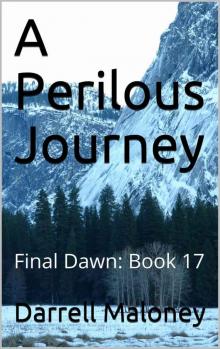 A Perilous Journey
A Perilous Journey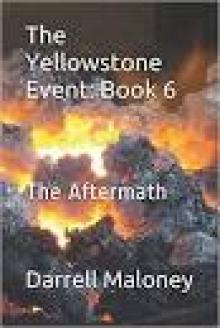 The Yellowstone Event: Book 6: The Aftermath
The Yellowstone Event: Book 6: The Aftermath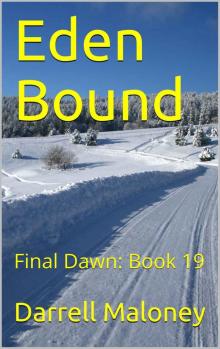 Eden Bound
Eden Bound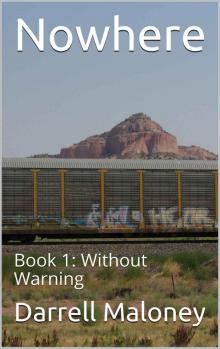 Without Warning
Without Warning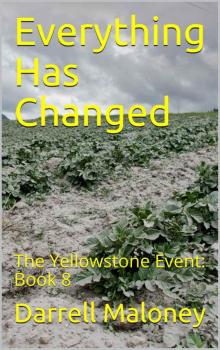 Everything Has Changed
Everything Has Changed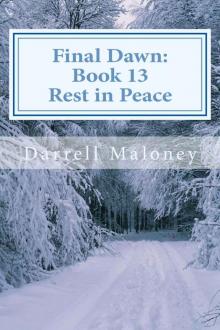 Rest in Peace
Rest in Peace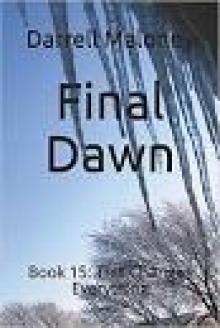 This Changes Everything
This Changes Everything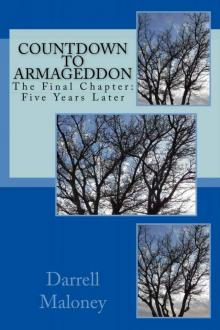 The Final Chapter
The Final Chapter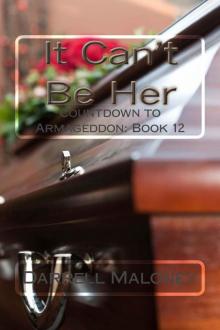 It Can't Be Her
It Can't Be Her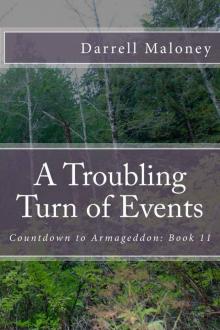 A Troubling Turn of Events
A Troubling Turn of Events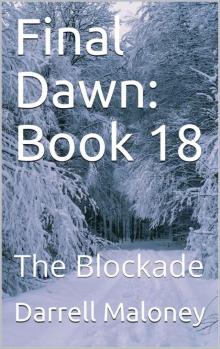 The Blockade
The Blockade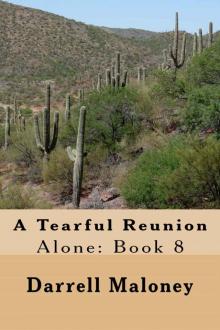 A Tearful Reunion
A Tearful Reunion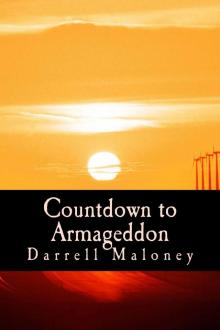 Countdown to Armageddon
Countdown to Armageddon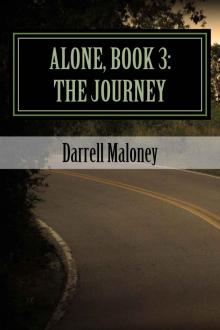 Alone, Book 3: The Journey
Alone, Book 3: The Journey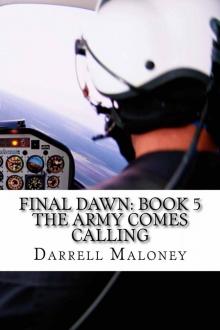 The Army Comes Calling
The Army Comes Calling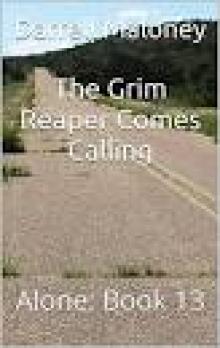 The Grim Reaper Comes Calling
The Grim Reaper Comes Calling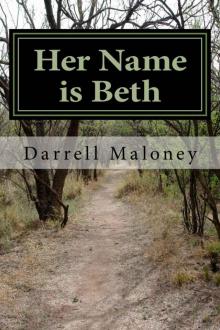 Her Name is Beth: Alone: Book 5
Her Name is Beth: Alone: Book 5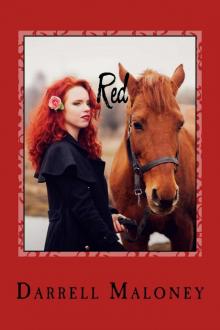 Red: The Adventure Begins
Red: The Adventure Begins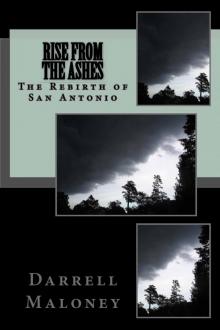 Rise From The Ashes: The Rebirth of San Antonio (Countdown to Armageddon Book 3)
Rise From The Ashes: The Rebirth of San Antonio (Countdown to Armageddon Book 3)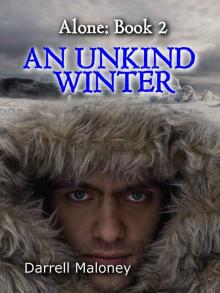 An Unkind Winter (Alone Book 2)
An Unkind Winter (Alone Book 2)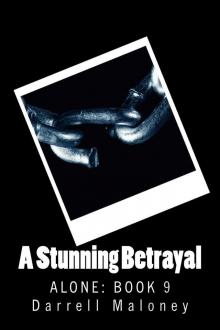 A Stunning Betrayal: Alone: Book 9
A Stunning Betrayal: Alone: Book 9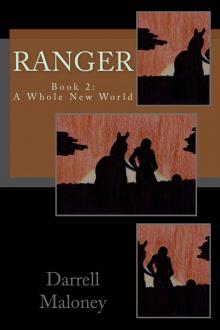 A Whole New World: Ranger: Book 2
A Whole New World: Ranger: Book 2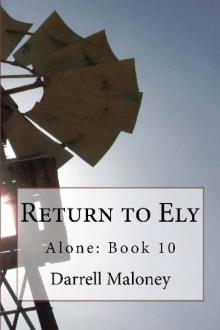 Return To Ely
Return To Ely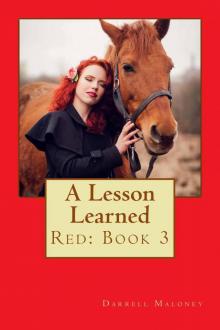 A Lesson Learned: Red: Book 3
A Lesson Learned: Red: Book 3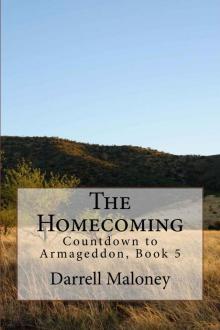 The Homecoming: Countdown to Armageddon: Book 5
The Homecoming: Countdown to Armageddon: Book 5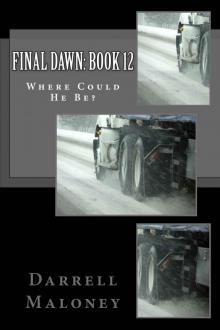 Final Dawn: Book 12: Where Could He Be?
Final Dawn: Book 12: Where Could He Be?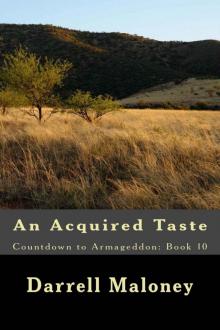 An Acquired Taste
An Acquired Taste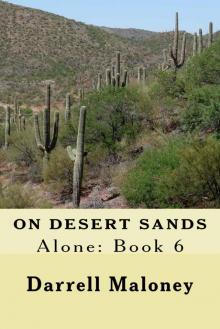 On Desert Sands: Alone: Book 6
On Desert Sands: Alone: Book 6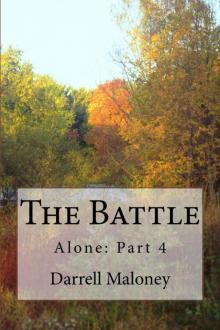 The Battle: Alone: Book 4
The Battle: Alone: Book 4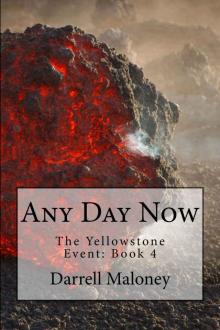 Any Day Now
Any Day Now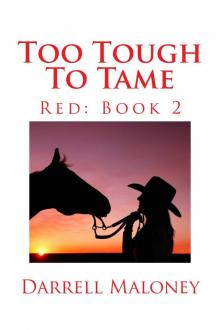 Too Tough To Tame: Red: Book 2
Too Tough To Tame: Red: Book 2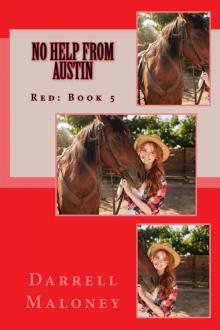 No Help From Austin: Red: Book 5
No Help From Austin: Red: Book 5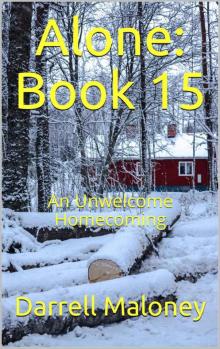 An Unwelcome Homecoming
An Unwelcome Homecoming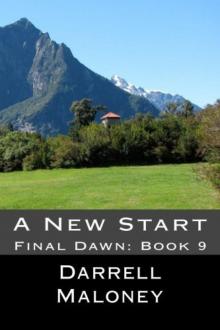 A New Start: Final Dawn: Book 9 (Volume 9)
A New Start: Final Dawn: Book 9 (Volume 9)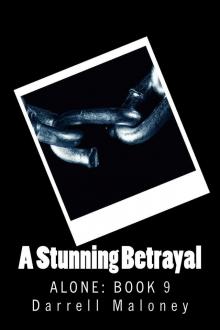 A Stunning Betrayal
A Stunning Betrayal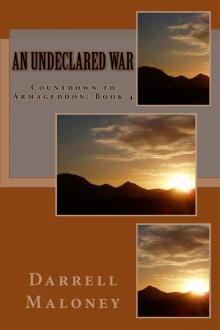 An Undeclared War (Countdown to Armageddon Book 4)
An Undeclared War (Countdown to Armageddon Book 4)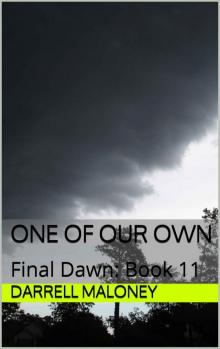 One of Our Own: Final Dawn: Book 11
One of Our Own: Final Dawn: Book 11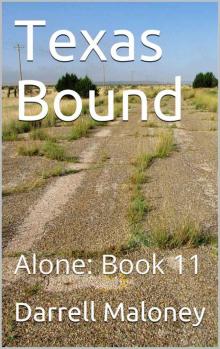 Texas Bound: Alone: Book 11
Texas Bound: Alone: Book 11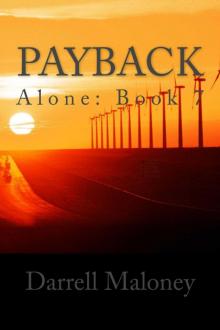 Payback: Alone: Book 7
Payback: Alone: Book 7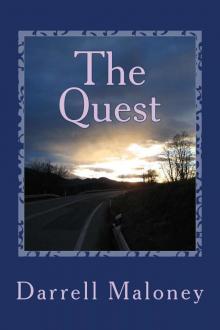 The Quest: Countdown to Armageddon: Book 6
The Quest: Countdown to Armageddon: Book 6 The Siege
The Siege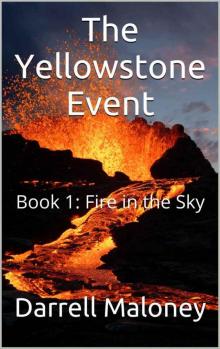 The Yellowstone Event: Book 1: Fire in the Sky
The Yellowstone Event: Book 1: Fire in the Sky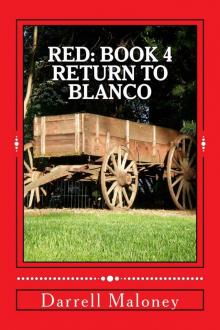 Return to Blanco (Red Book 4)
Return to Blanco (Red Book 4)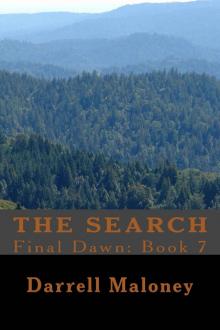 The Search
The Search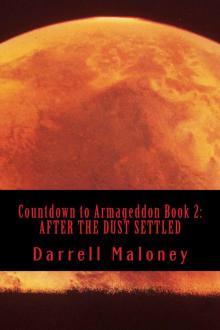 AFTER THE DUST SETTLED (Countdown to Armageddon Book 2)
AFTER THE DUST SETTLED (Countdown to Armageddon Book 2)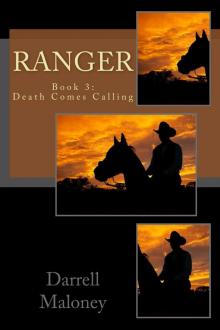 Death Comes Calling (Ranger Book 3)
Death Comes Calling (Ranger Book 3)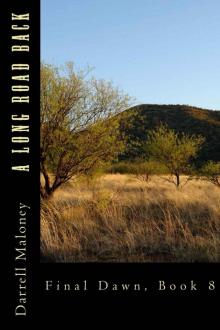 A Long Road Back: Final Dawn: Book 8
A Long Road Back: Final Dawn: Book 8